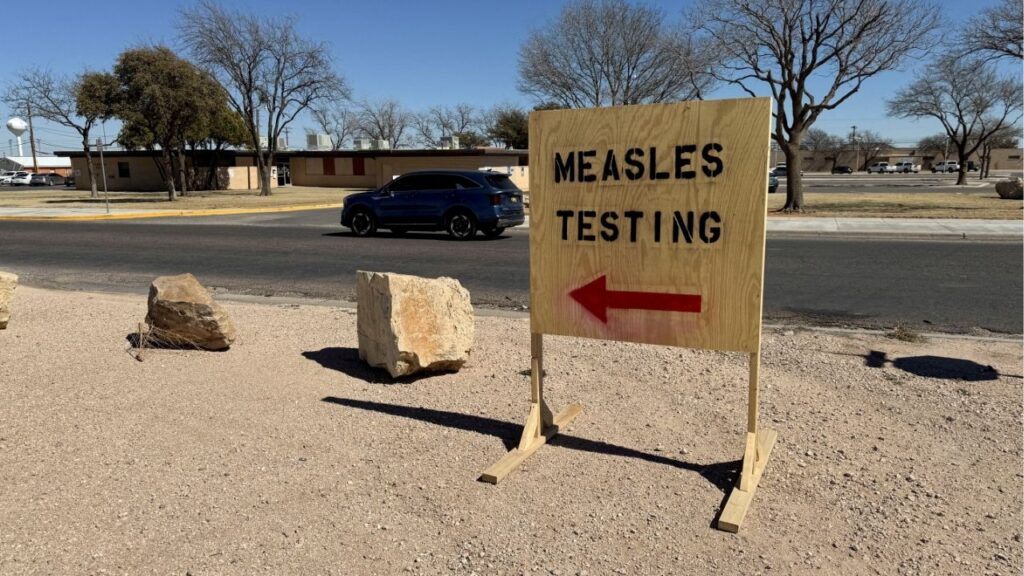Share
|
Getting your Trinity Audio player ready...
|
California has allocated more than $1 billion in recent years to combat its opioid crisis. Much of the money has been used to distribute fentanyl test strips and the overdose reversal drug naloxone, as well as deliver medical care to people who are homeless. The state has an opioid awareness campaign tailored to youths and recently called on the National Guard to help detect drug traffickers.
Yet the problem keeps getting worse.
Don Thompson
KFF Health News
Driven largely by the prevalence of fentanyl, a synthetic opioid up to 100 times stronger than morphine, drug overdoses in California now kill more than twice as many people as car accidents, more than four times as many as homicides, and more than either diabetes or lung cancer, according to California Health Policy Strategies, a Sacramento consulting group. And the state’s overdose surveillance dashboard indicates most opioid overdose deaths involve fentanyl.
Provisional data for last year from the Centers for Disease Control and Prevention shows a small annual increase in overdose deaths in California, to nearly 12,000. Across the U.S., overdose deaths again topped 100,000.
“As a parent, it scares the hell out of me. As a governor, I see it, I recognize the nature of what’s occurred on the streets,” Gov. Gavin Newsom said May 12 in announcing more funding for California to produce its own naloxone.
Despite all the state is doing to reduce drug overdose deaths, public health policy experts say there are no easy or clear answers. Drug policy experts applaud California’s effort to make naloxone as commonly available as fire extinguishers in schools, bars, libraries, and gas stations, but they also recommend diverting more offenders from prisons and jails into treatment and encourage ramping up the use of anti-addiction medication.
“Even if we do a lot of things right in policy, we’re going to have a fair amount of deaths in the coming years,” said Keith Humphreys, a professor of psychiatry and behavioral sciences at Stanford University and a drug policy expert.
He said lawmakers should examine the underlying, complex causes of addiction if they want to make lasting change. Lawmakers have created a Select Committee on Fentanyl, Opioid Addiction, and Overdose Prevention and are advancing a bill to create a Fentanyl Addiction and Overdose Prevention Task Force. The bill would require the task force to start meeting next year and submit an interim report by January 2025 and recommendations by July 2025.
“It really is something, like covid, that we have to focus on and make some permanent structural changes, like to health care, mental health care, and funding to deal with addiction,” Humphreys said.
‘We Have a Lot More Work to Do,’ Newsom Says
Newsom acknowledged as much, saying, “We have a lot more work to do.”
The Democratic governor was joined last month by Attorney General Rob Bonta in calling on the California National Guard, California Highway Patrol, and state Department of Justice to crack down on fentanyl dealing in San Francisco, where fatal overdoses jumped more than 40% in the first three months of this year over 2022.
The move was criticized as “a law enforcement-first approach to matters of public health” in a joint statement from 28 organizations including the American Civil Liberties Union of Northern California and the San Francisco Public Defender’s Office.
Bills Backing Stiffer Penalties Stall
While the governor has focused on fentanyl trafficking and making naloxone more readily available, state lawmakers have recently been debating whether and how to stiffen punishments for dealers.
Several proposals have already stalled, such as one to send dealers to jail for up to nine years if they sell fentanyl on a social media platform and another warning dealers they could be charged with murder if someone dies taking their drugs. Lawmakers kept alive two bills to boost punishments for dealers of large volumes of fentanyl and those who carry a gun.
Democrats who control the legislature’s public safety committees are reluctant to support tougher penalties for fear of sparking a new war on drugs or reprising steep penalties on crack cocaine that criminalized Black people disproportionately.
Black and Latino Californians experienced an increase in overdose deaths of more than 200% between 2017 and 2021, according to Konrad Franco, who conducted research for California Health Policy Strategies. Black people make up 6% of California’s population but accounted for 13% of its overdose deaths in 2021.

Dems Oppose a New War on Drugs
“We cannot go backwards and fill our prisons with kids of color,” said Assemblymember Liz Ortega, a Democrat from San Leandro, during a special hearing last month on fentanyl-related bills.
Georges Benjamin, executive director of the American Public Health Association, questioned the effectiveness of increased penalties for people who are largely controlled by their addictions.
Benjamin said lawmakers should instead support drug courts that promote treatment programs over incarceration, though he said incarceration may be needed to protect the public mostly from violent offenders who refuse treatment and harm others.
Humphreys pointed to the Honest Opportunity Probation With Enforcement and 24/7 Sobriety programs as models. They combine regularly testing offenders for drugs and alcohol with short penalties for violations.
“You use the criminal justice system in a way that in the long run actually reduces incarceration rather than increasing it,” Humphreys said of the approach.
Yet Tanya Tilghman, a Black woman from San Francisco, supports tougher penalties for fentanyl dealers and said the issue crosses racial lines. She became an activist with Mothers Against Drug Addiction and Deaths after her son became addicted to methamphetamine and more recently to fentanyl.
“When people are doing drugs, it doesn’t see color or racial boundaries,” she said. “It’s killing a lot more people and it’s killing a lot of Black people.”
Pair up Crackdowns With Public Health Education: Expert
Daniel Ciccarone, a drug policy expert at the University of California-San Francisco, said enforcement efforts may be popular with the public but “simply don’t work as well as we want them to.” At a minimum, he said, any crackdown should be coupled with an equal public health approach.
“We’ve thrown tens of billions of dollars at the war on drugs over two generations, almost three generations now, and believe it or not, drugs across category — from marijuana to cocaine to heroin/fentanyl — drugs are ever more pure and ever cheaper despite impressive levels of effort,” Ciccarone said. “The most honest answer is there’s no clear answer as to what to do about the fentanyl crisis.”
He recommended California allow supervised consumption sites where opioid users could legally inject drugs, an idea Newsom vetoed last fall but that Ciccarone said can ease people into treatment. Other harm reduction strategies, including expanding the use of test strips and other chemical analyses to check drugs for contamination with fentanyl, can also save lives, he said.
Humphreys led a 17-member commission that examined the opioid crisis and made recommendations including expanding the availability of prescription drugs such as buprenorphine, naltrexone, and methadone to ease addicts’ cravings and withdrawal symptoms.
Still, some parents of children who have experienced opioid addiction say tougher penalties must be part of the response.
“What they don’t understand is that fentanyl has changed the drug landscape like no other drug has in the history of the United States of America,” said Jaime Puerta, whose only son, Daniel, died from fentanyl in 2020 at age 16.
About KFF Health News
KFF Health News is a national newsroom that produces in-depth journalism about health issues and is one of the core operating programs at KFF—an independent source of health policy research, polling, and journalism. Learn more about KFF.
Subscribe to KFF Health News’ free Morning Briefing.




















